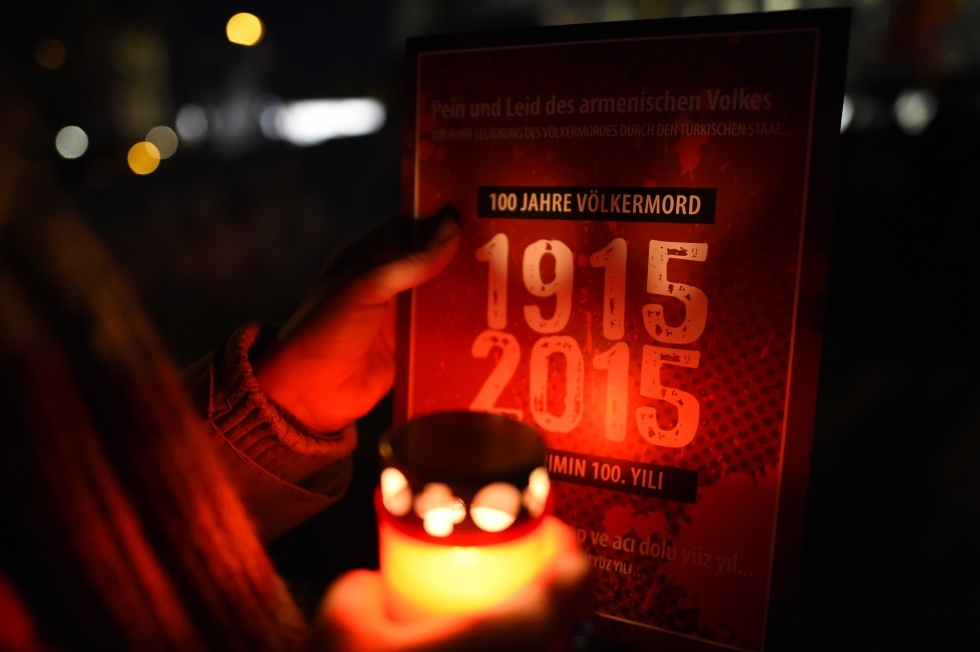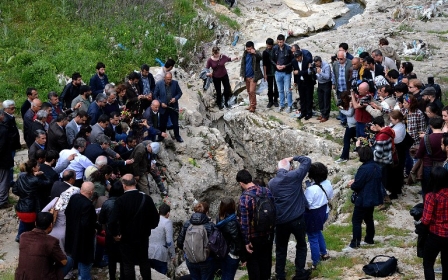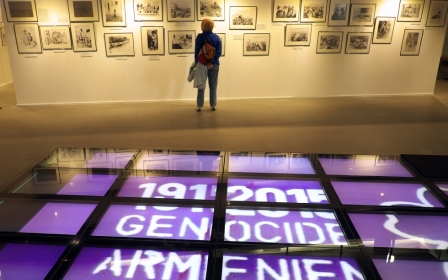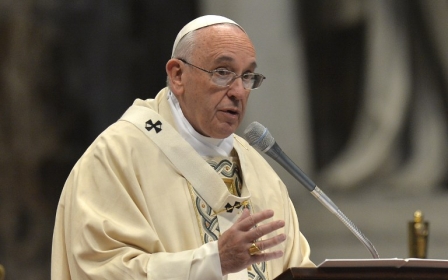Controversy as Armenians, Turks commemorate joint anniversaries

World leaders travelled to the neighbouring countries of Turkey and Armenia on Friday to attend two very different commemorations.
In the Armenian capital of Yerevan, French president Francois Hollande and Russian leader Vladimir Putin gathered for a ceremony marking the 100th anniversary of the Armenian genocide, in which as many 1.5 million Armenians were slaughtered by the revolutionary Young Turks government during the early years of the Republic of Turkey.
A thousand kilometres west in the town of Canakkale in southern Turkey, Australian Prime Minister Tony Abbot, New Zealand Premier John Key, and Britain's Prince Charles commemorated the Battle of Gallipoli in 1915 which saw the allied forces defeated by the Ottoman Empire in one of the bloodiest battles of the First World War.
The duelling ceremonies are indicative of an ongoing and bitter spat between the governments of Armenia and Turkey over the two country's historical legacies.
Armenia has accused Turkey of deliberately moving back the day of the Gallipoli commemorations to 24 April – the Gallipoli campaign began on 25 April – in order to overshadow the anniversary of the Armenian genocide, a definition still contested by the Turkish government.
After receiving an invite from Turkish President Recep Tayyip Erdogan to attend the Gallipoli commemorations in January, Armenian President Serzh Sargsyan lashed out at Erdogan's decision to host the two ceremonies at the same time.
"What purpose is served here if not to divert world attention from the activities marking the centennial of the Armenian genocide? Turkey has a much more important responsibility towards their people and all mankind: recognition and condemnation of the Armenian genocide,” wrote Sargsyan.
Recognition of the Armenian genocide in Turkey has been hugely contentious – successive governments have recognised that massacres occurred, but have refused to term the bloodshed “genocide” arguing that the deaths took place in the context of a Russian invasion of Turkey and were not systematically designed to ethnically cleanse the Armenians.
Erdogan has described the genocide claim as "baseless".
"The Armenian claims on the 1915 events, and especially the numbers put forward, are all baseless and groundless," he said, according to the Turkish daily Today’s Zaman.
"I say, we're ready to open our military archives. We have no fear, no worries on this subject. Our ancestors did not persecute."
In Yerevan, Putin joined other leaders in laying flowers at a hilltop memorial.
"There is no and cannot be any justification for mass murder of people. Today we mourn together with the Armenian people," he said.
Hollande said that more recognition was needed from Turkey of the genocide.
"Important words have already been said in Turkey, but others are still expected so that shared grief can become shared destiny."
Some outlets in Turkey though appeared to be taking a more conciliatory tone than Erdogan – the daily Cumhuriyet printed the words “Never again” in Armenian on its front page.
Global outrage
Armenians living in the Diaspora took to the streets on Friday to condemn Turkey over its failure to recognise the genocide.
Iranian Armenians marched to the Turkish embassy in Iran chanting “death to the fascist government of Turkey” on Friday.
The clashes quickly spread to social media:
The commemorations have also been highly contentious in neighbouring Azerbaijan, with whom Armenia has been in various low-level conflicts since the end of the Cold War, primarily over the disputed Nagorno-Karabach region.
The independence wars of the two countries in 1918 have also been a major point of contention, with many accusations of massacres on both sides.
Some Azeris took to social media using the hashtag #armenianlie:
New MEE newsletter: Jerusalem Dispatch
Sign up to get the latest insights and analysis on Israel-Palestine, alongside Turkey Unpacked and other MEE newsletters
Middle East Eye delivers independent and unrivalled coverage and analysis of the Middle East, North Africa and beyond. To learn more about republishing this content and the associated fees, please fill out this form. More about MEE can be found here.




